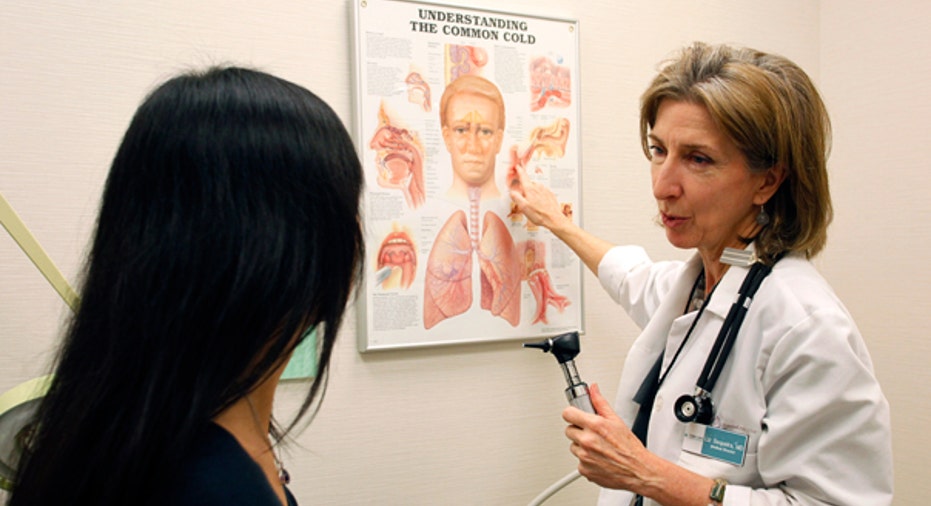How to (Respectfully) Disagree With Your Physician

When we aren’t feeling well or sense something is wrong with us, we head to the doctor to get professional insight. But what happens if we don’t agree with our doctor’s expert opinion?
“Despite all the rhetoric about shared decision-making, primary care patients are still scared stiff of their doctors, says Tom Delbanco, a physician at Beth Israel Deaconess Medical Center (BIDMC) and professor at Harvard Medical School.
He explains that in the view of many patients, doctors are still authority figures, and there’s fear of retribution if they speak up. The thought process goes something like this: “If I challenge my doctor, heaven help me six months from now if something goes wrong with me.”
Delbanco himself is no stranger to the experience. Once, when he was a patient in the hospital, he noticed physicians walking into a patient’s room without washing their hands. “You didn’t wash your hands,” Delbanco automatically shouted out, then within seconds realized those same physicians would soon be entering his room. “’I should have kept my mouth shut,’ I thought to myself."
If fear isn’t bad enough, there’s also vulnerability. Lying on the exam table in a flimsy paper gown is not conducive to serious conversation, says Kelly Haskard-Zolnierek, associate professor of psychology at Texas State University.
It takes a considerable measure of courage and confidence to protest something your doctor tells you, but if you don’t speak up, experts say you’re doing yourself a huge disservice.
Giving Patients the Tools
Four years ago, Delbanco teamed up with registered nurse Jan Walker, a Harvard Medical School and BIDMC health researcher to lead OpenNotes, a study which explored the pros and cons of easy access to health data afforded by electronic medical records.
With OpenNotes, doctors invite patients to review the notes they write following an office visit. Among other things, patients in the study indicated access to the notes made them feel more in control of their general health, better able to manage their medical conditions and more compliant with taking their prescribed medications.
Today, more than three million people share notes with their physicians through the national OpenNotes initiative. And, in March, BIDMC expanded access to notes beyond primary care outpatients by piloting access to mental health notes for patients suffering with mental illness.
OpenNotes builds up trust between patients and their doctors, says Delbanco. “You trust your doctor and your doctor must trust you.”
Without trust, patients are apt to feel their doctors are not hearing their concerns, says Haskard-Zolnierek, and certain demographics, particularly elderly patients, need an additional boost to ask important health questions.
She adds that research shows both doctors and patients need to be coached on how to best communicate, and points to the increase in public service announcements and billboards that guide patients to ask questions and become their own health-care advocates. Kiosks are also popping up in practice waiting rooms to guide patients to ask their physicians questions.
What’s more, in lieu of filling out forms in the waiting room, some patients are given tablets or being emailed beforehand to get them thinking about questions, says Haskard-Zolnierek. For example, patients might be encouraged to ask about the side effects of a medication they are taking.
How a patient approaches a physician can make all the difference, says Dr. Kathleen Potempa professor and dean of the University of Michigan School of Nursing. Avoid being confrontational, but definitely push boundaries to change the paradigm, she says.
Potempa advises telling your doctor: “I really like and trust you as my doctor, however, I don’t like the fact that I’m not comfortable asking you questions. Can we agree that in the future we can make time at every visit for me to specifically ask questions? Also please understand I am not an expert so my concerns may seem minor to you, but they are important to me.”
She says a more acute situation calls for even stronger language: "I really don't want a medical [or nursing student] participating in my care. I know this is a teaching hospital but because I am really sick, I only want full-fledged doctors and nurses doing all these technical things that are part of my care."
Experts suggest these tips to unbutton communications with your physician:
Be respectful of your doctor’s knowledge. Express your concerns honestly and ask: “Can we try another option before using this drug or treatment?” You’re giving the physician the opportunity to explain the benefits of a drug or protocol more thoroughly, says Haskard-Zolnierek.
Pick your timeframe. Ask to carve out a specific time in the appointment to discuss concerns, or request another appointment for that purpose.
Take advantage of communication offerings. Whether it’s OpenNotes, tablets, email or talking to team members, make sure you use the communication tools your doctor’s office provides.
Think like a partner. “The vast majority of doctors want to do a great job and have satisfied patients,” says Potempa. Remember, you and your doctor are in this together.



















